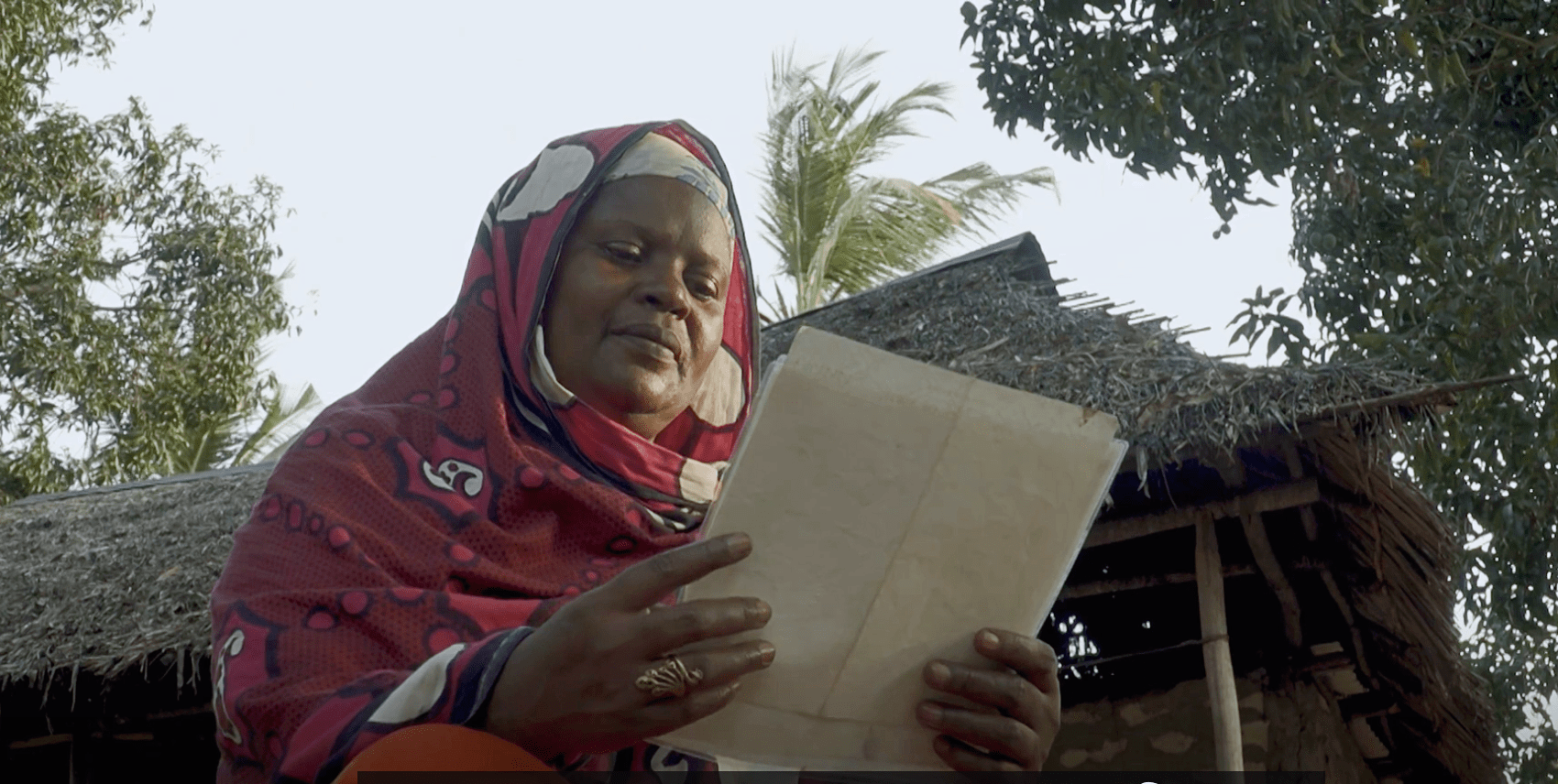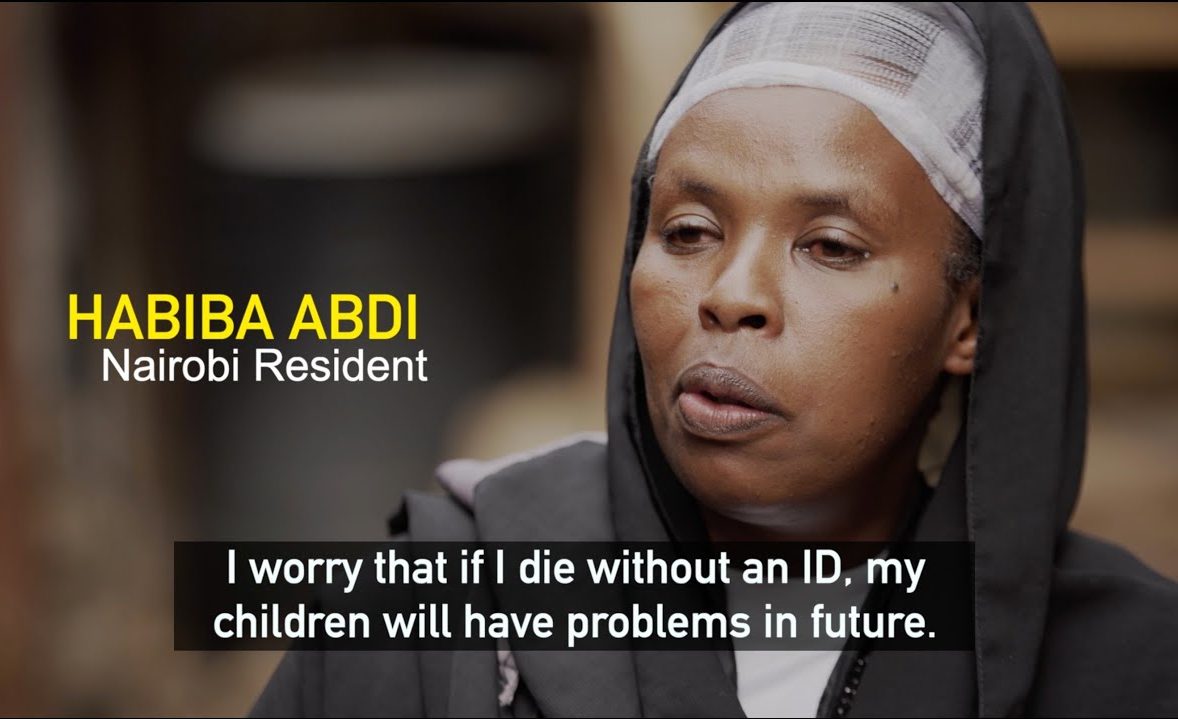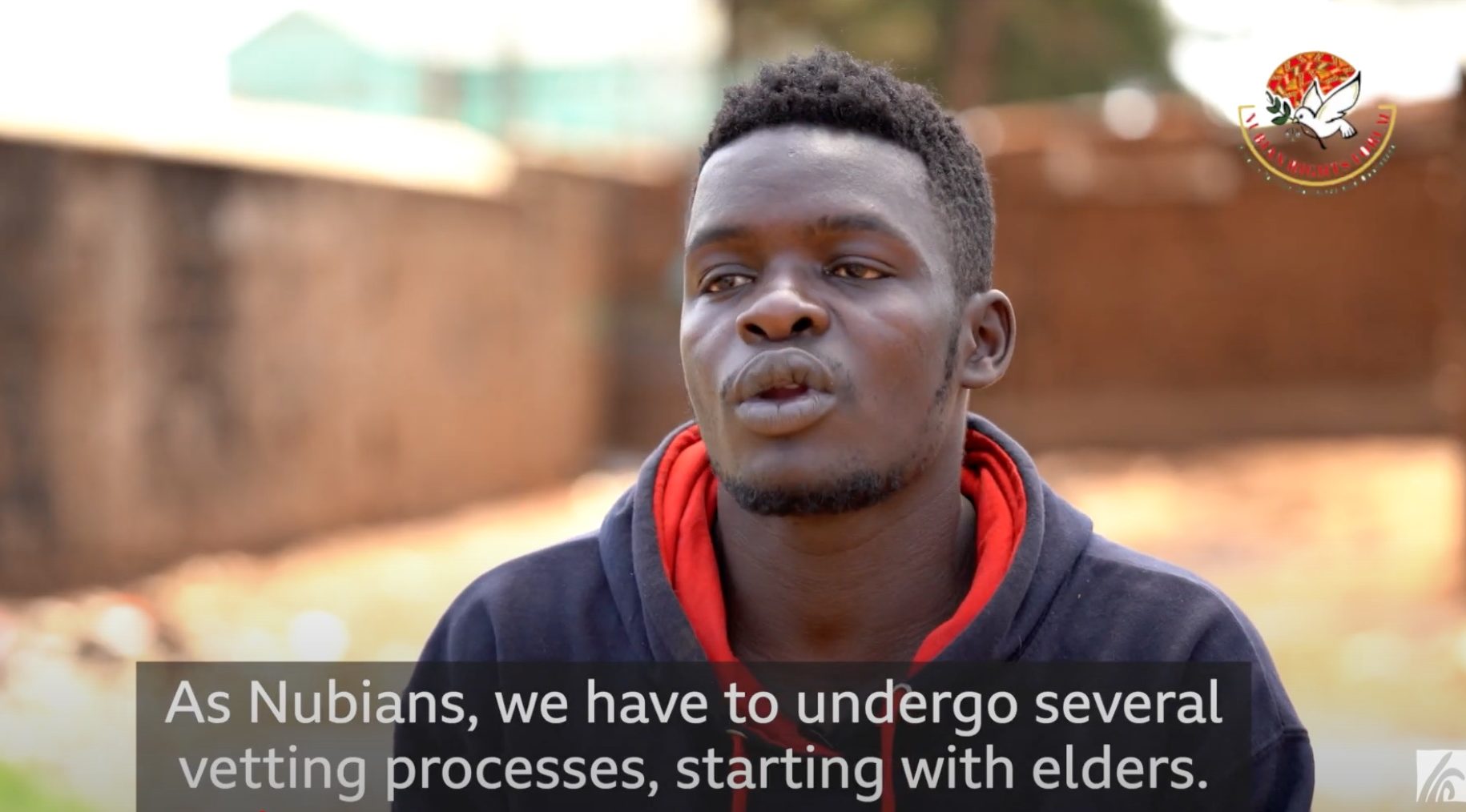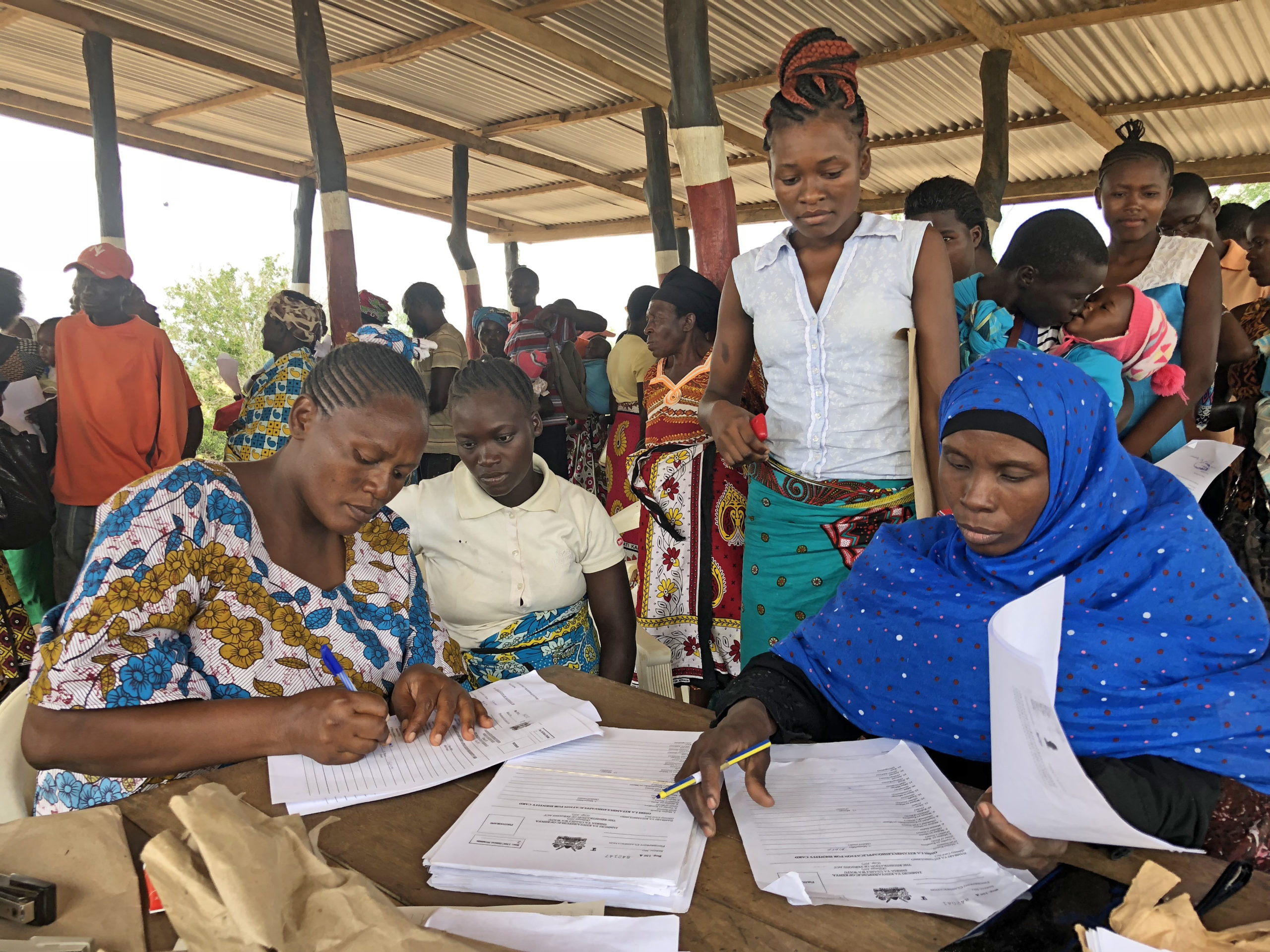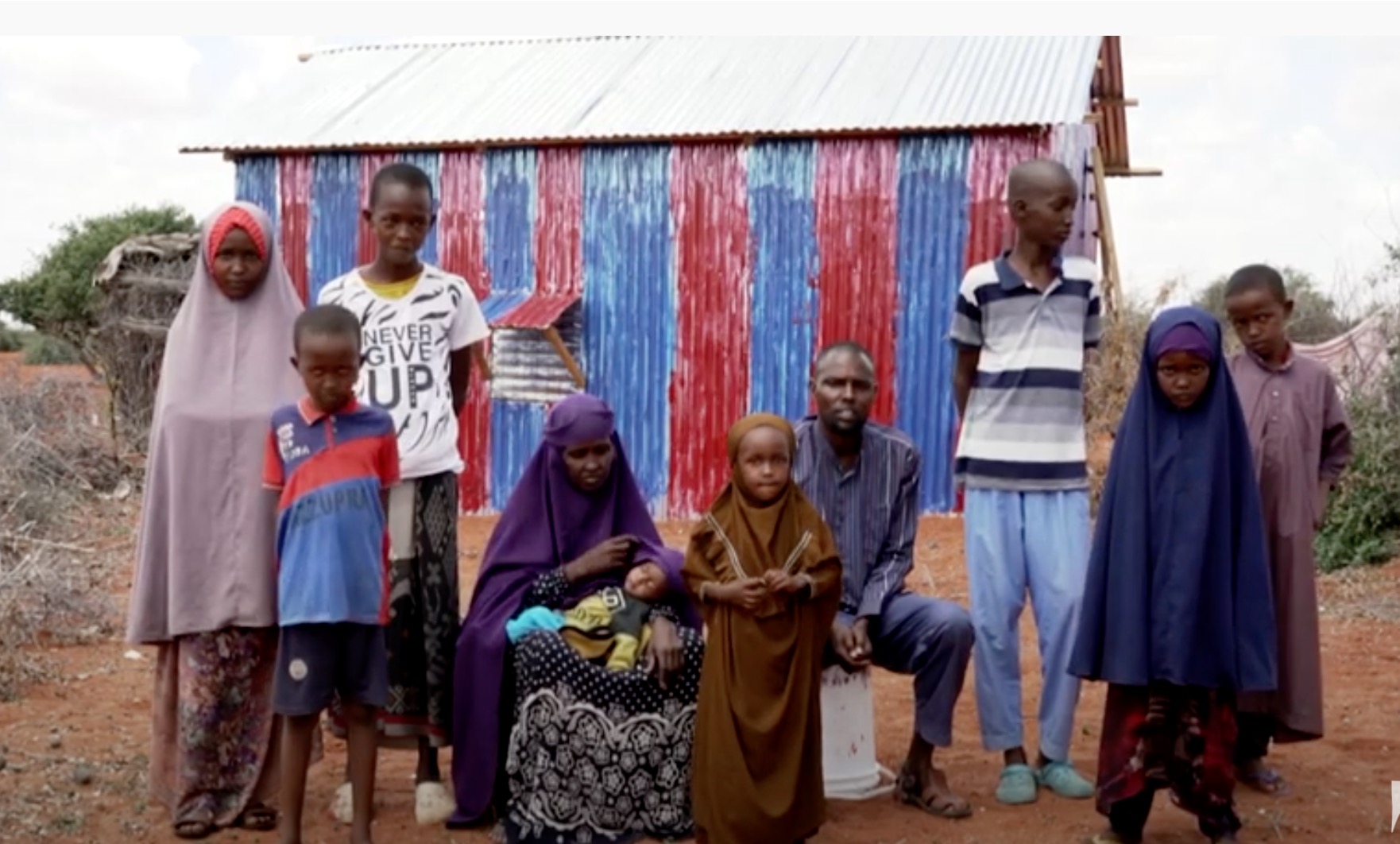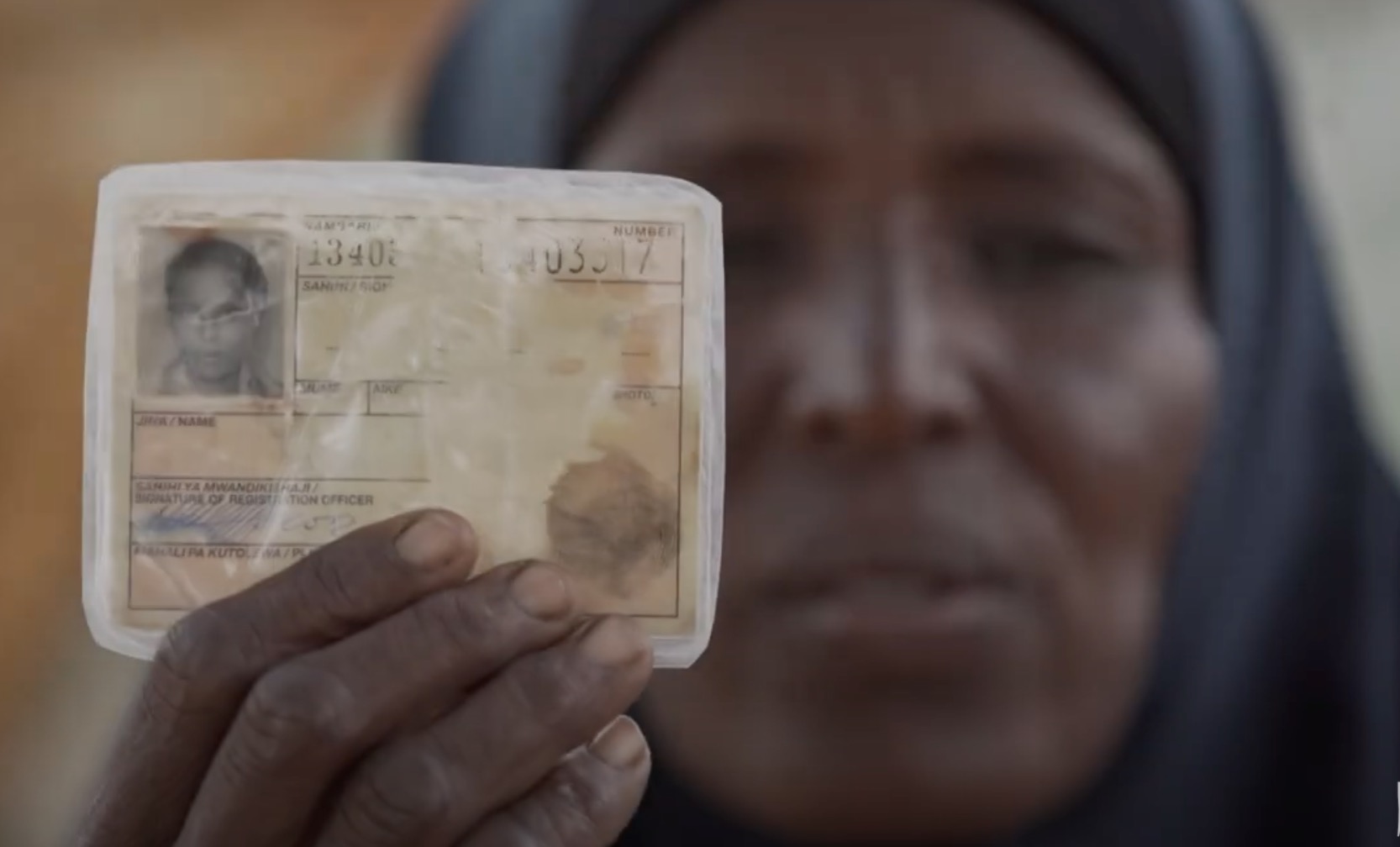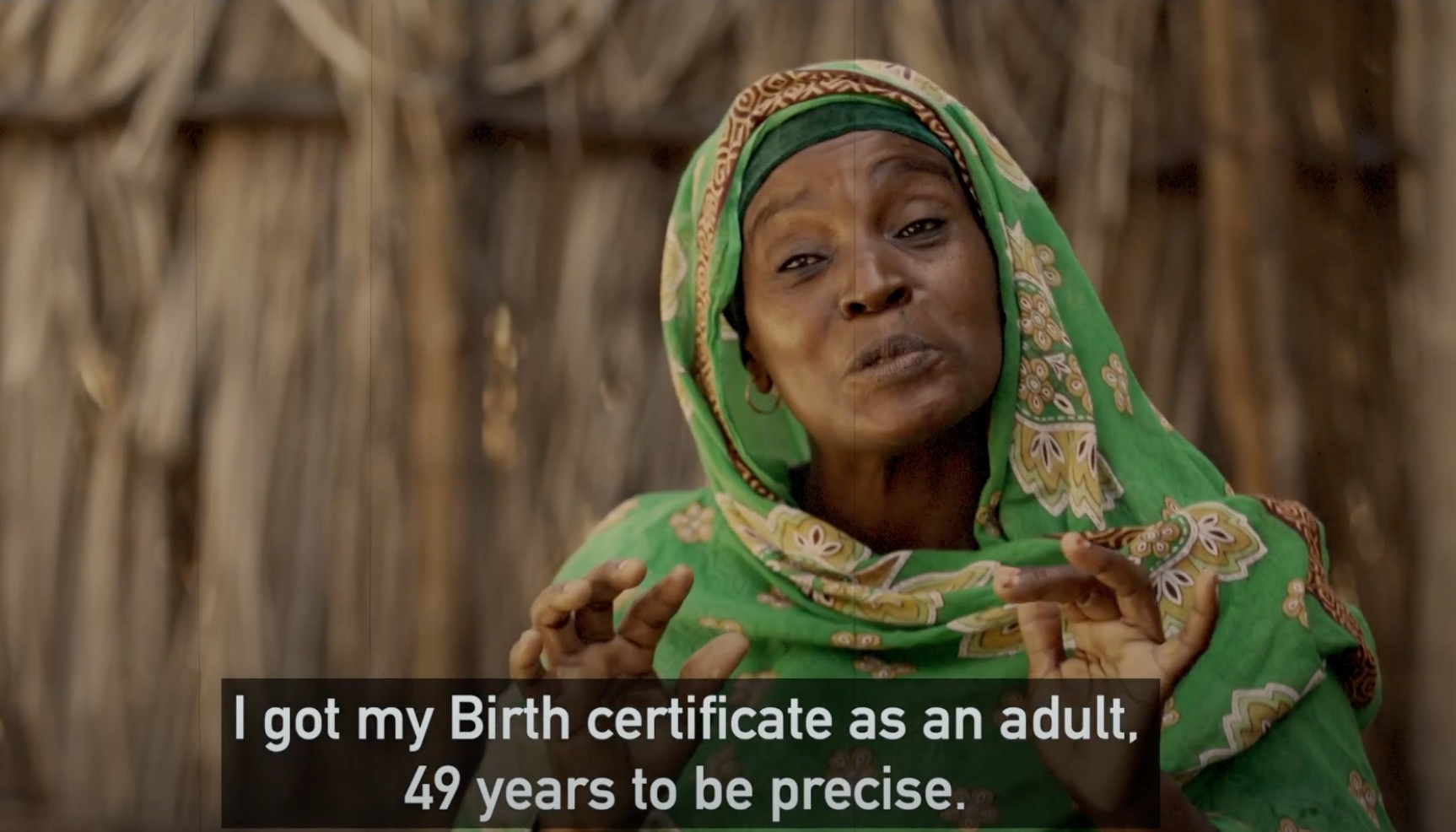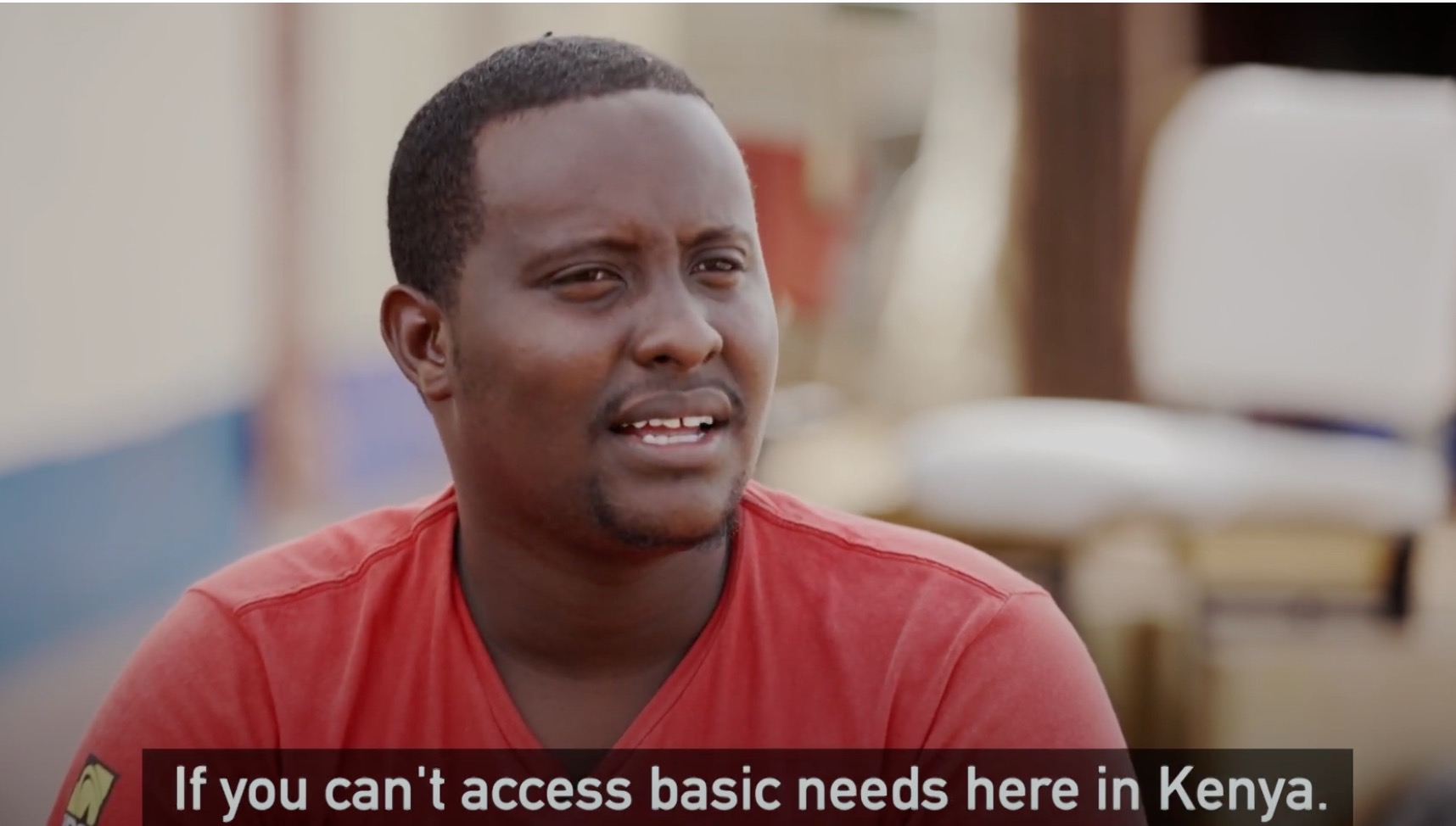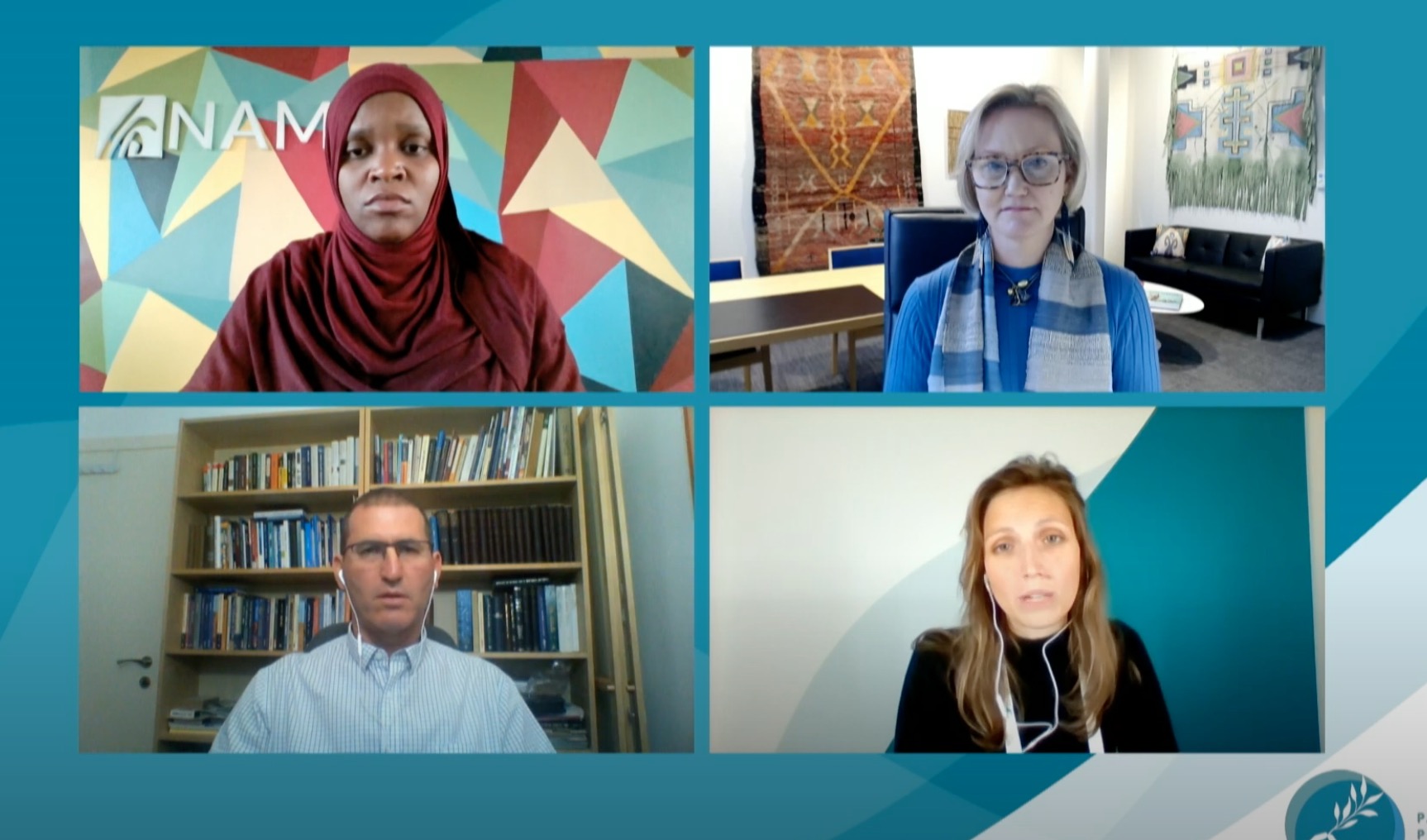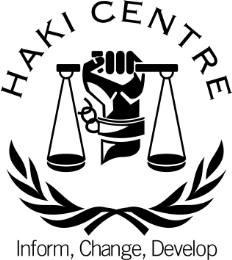Without an ID, they cannot apply for a job, receive a bank loan, or access healthcare. They are excluded from society.
Nearly 2,000 individuals applied for documentation with the support of community paralegals in 2021 (see graphic below). Through the process, they learn that the barrier to getting an ID is not administrative hurdles but systemic injustice. This first-hand experience can be a powerful activating force.
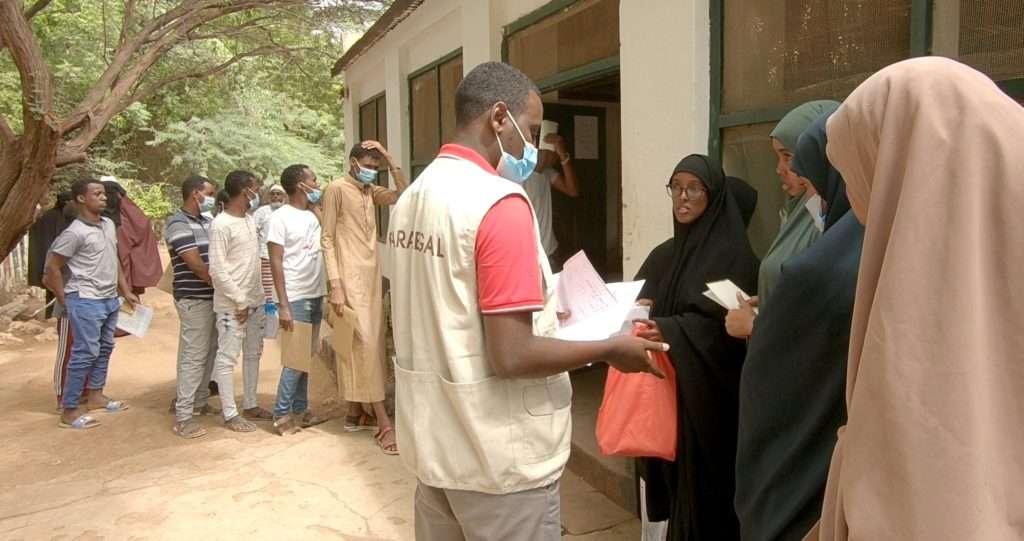
A community paralegal with Haki na Sheria Initiative checks people’s documents as they wait to apply for their identity card in Garissa, Kenya
For Hassan, who secured his ID with help of a paralegal, it inspired him to become a paralegal himself. For many others, it was an entry point to getting involved in changing the system. Through community forums organized by Namati and partners, these individuals, and other members of the affected communities, have continued to build their understanding of the issues along with practical advocacy skills. It is here that the roots of collective action are taking hold.
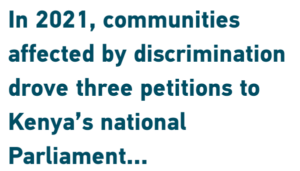 In 2021, communities affected by discrimination drove three petitions to Kenya’s national Parliament, seeking an end to discrimination in the ID application process, the removal of Kenyan citizens from the refugee database, and nationality rights for the stateless Pemba community.
In 2021, communities affected by discrimination drove three petitions to Kenya’s national Parliament, seeking an end to discrimination in the ID application process, the removal of Kenyan citizens from the refugee database, and nationality rights for the stateless Pemba community.
The petition to end discrimination in the ID process, for example, was powered by the Kenyan Nubian community. With the support of paralegals, they dug into ID-related laws, examined Nubian people’s experiences with ID applications in practice, and developed proposed solutions that they drafted into a petition to Parliament. They then secured support for the petition among the broader Nubian community by holding public forums in multiple towns. The Member of Parliament for Kibra, where many Nubians live, agreed to champion the petition in Parliament. Shortly after, the Committee on Administration & National Security conducted a fact-finding mission.
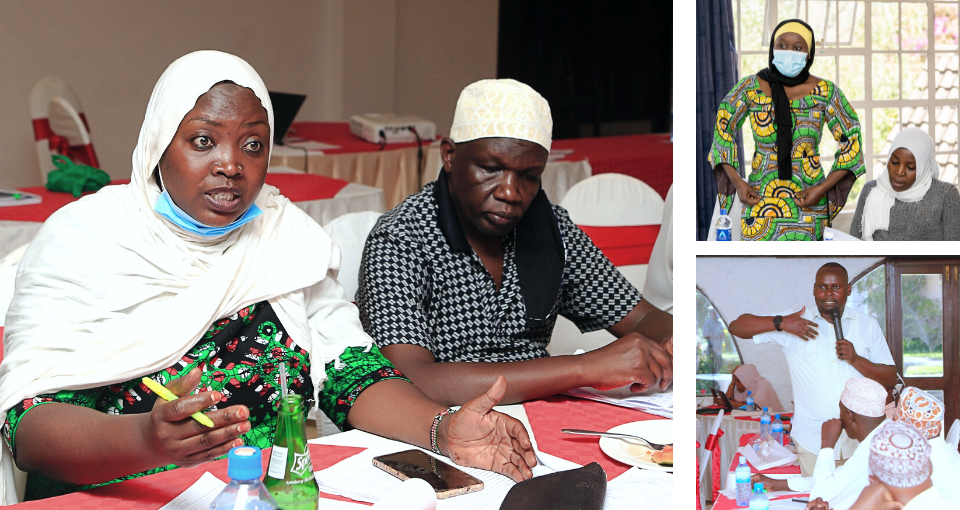
Members of Kenya’s Nubian community discuss the contents of a petition to end discrimination in the ID process
At a public meeting organized by the committee, community members and paralegals detailed the discriminatory hurdles Kenyan Nubians face when applying for ID cards, sharing personal experiences as examples. Individuals spoke powerfully of the opportunities they had lost and the exclusion they had endured as a result of their applications being unjustly delayed or denied. They followed this up, supported by Namati and NRF, with written submissions that included further legal analysis and paralegal case data as supporting evidence.
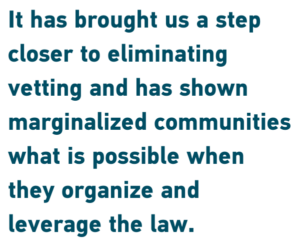 In December 2021, the committee issued a report to the Ministry of the Interior with recommendations — including that vetting be done in a transparent and non-discriminatory manner — and timelines for reporting progress. This is an important milestone. It is the first time, to our knowledge, that a government body has acknowledged the unjustness in the vetting process and further, put in motion efforts to rectify it. It has brought us a step closer to eliminating vetting and has shown marginalized communities what is possible when they organize and leverage the law.
In December 2021, the committee issued a report to the Ministry of the Interior with recommendations — including that vetting be done in a transparent and non-discriminatory manner — and timelines for reporting progress. This is an important milestone. It is the first time, to our knowledge, that a government body has acknowledged the unjustness in the vetting process and further, put in motion efforts to rectify it. It has brought us a step closer to eliminating vetting and has shown marginalized communities what is possible when they organize and leverage the law.
Before the year’s end, the Nubian community held several meetings to strategize on how to ensure the committee’s recommendations are implemented. They also discussed how they could work alongside other communities to achieve the ultimate end to vetting for all Kenyans.
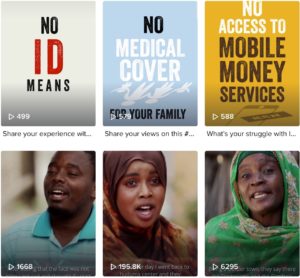
TikTok videos for the #MyIDMyRight campaign
Alongside these efforts to engage Parliament, our coalition’s new campaign #MyIDMyRight is building awareness of this systemic injustice among the broader Kenyan public. Tens of thousands of people across the country have engaged with the campaign on social media. Our aim is to convert their interest into action; to build alliances between those affected by discrimination and those who are not to together push for nationwide reform.
Moving into 2022, we’re focused on learning from and building on the experience of catalyzing collective action. We will foster more cross-community advocacy on common identification challenges, including supporting community mobilization to shape new draft legislation on Kenya’s digital identity system to ensure it reflects the needs of historically excluded groups. Together, we will continue to grow the national movement for equality in access to IDs.
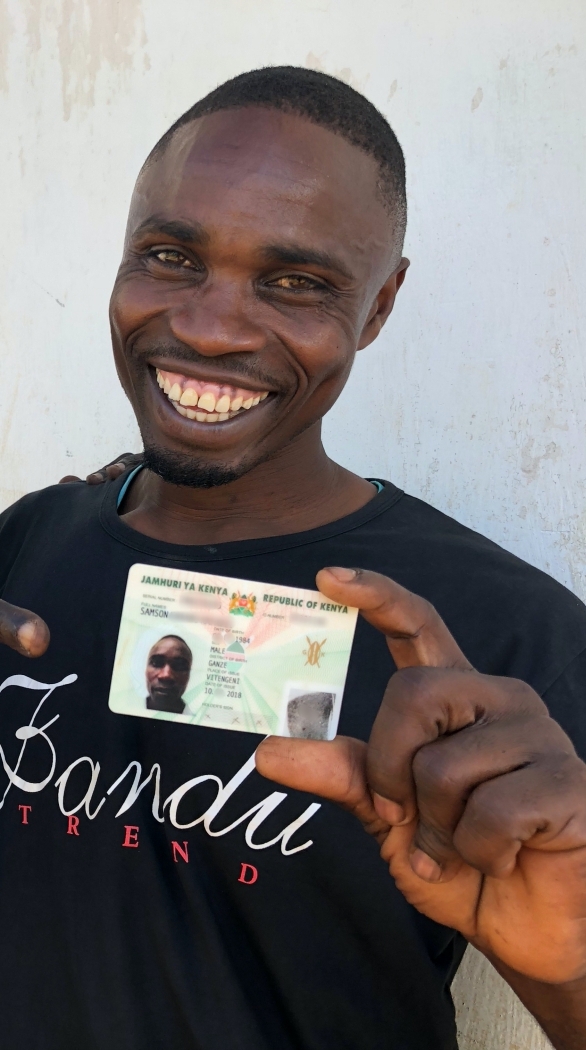
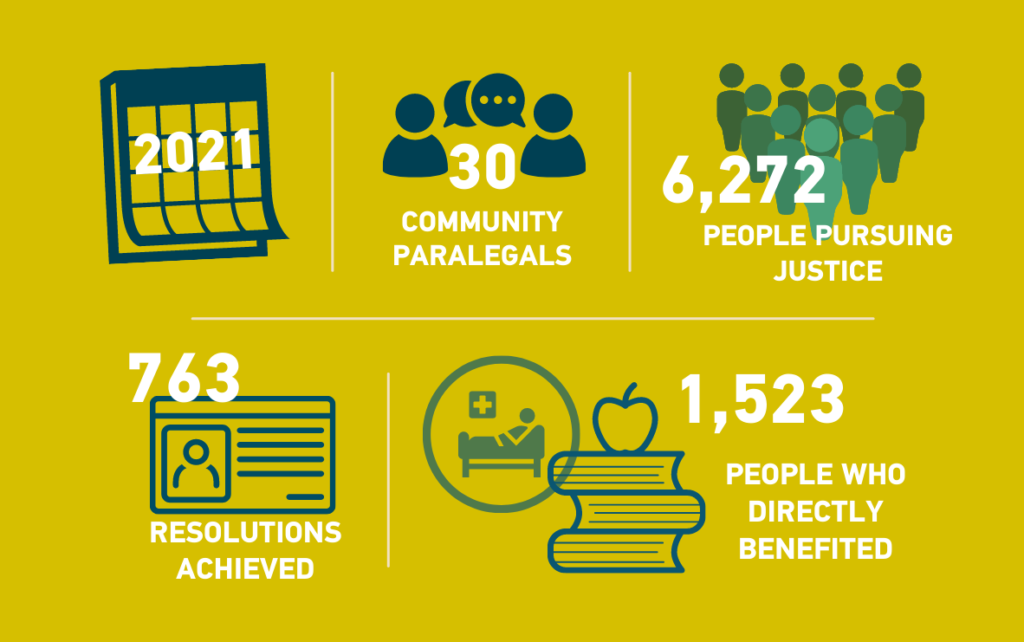

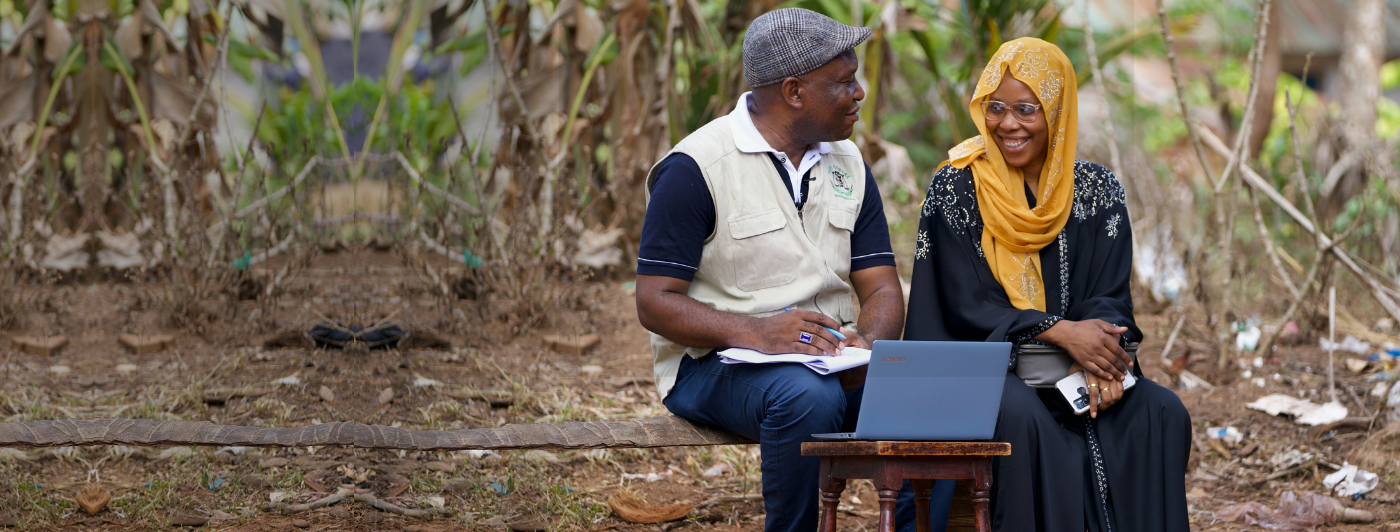

 In 2021, communities affected by discrimination drove three petitions to Kenya’s national Parliament,
In 2021, communities affected by discrimination drove three petitions to Kenya’s national Parliament, 
 In December 2021, the
In December 2021, the 
